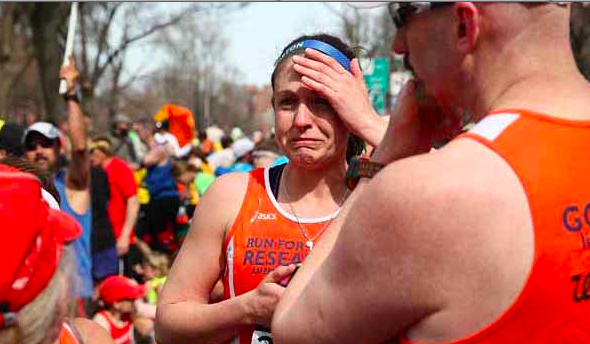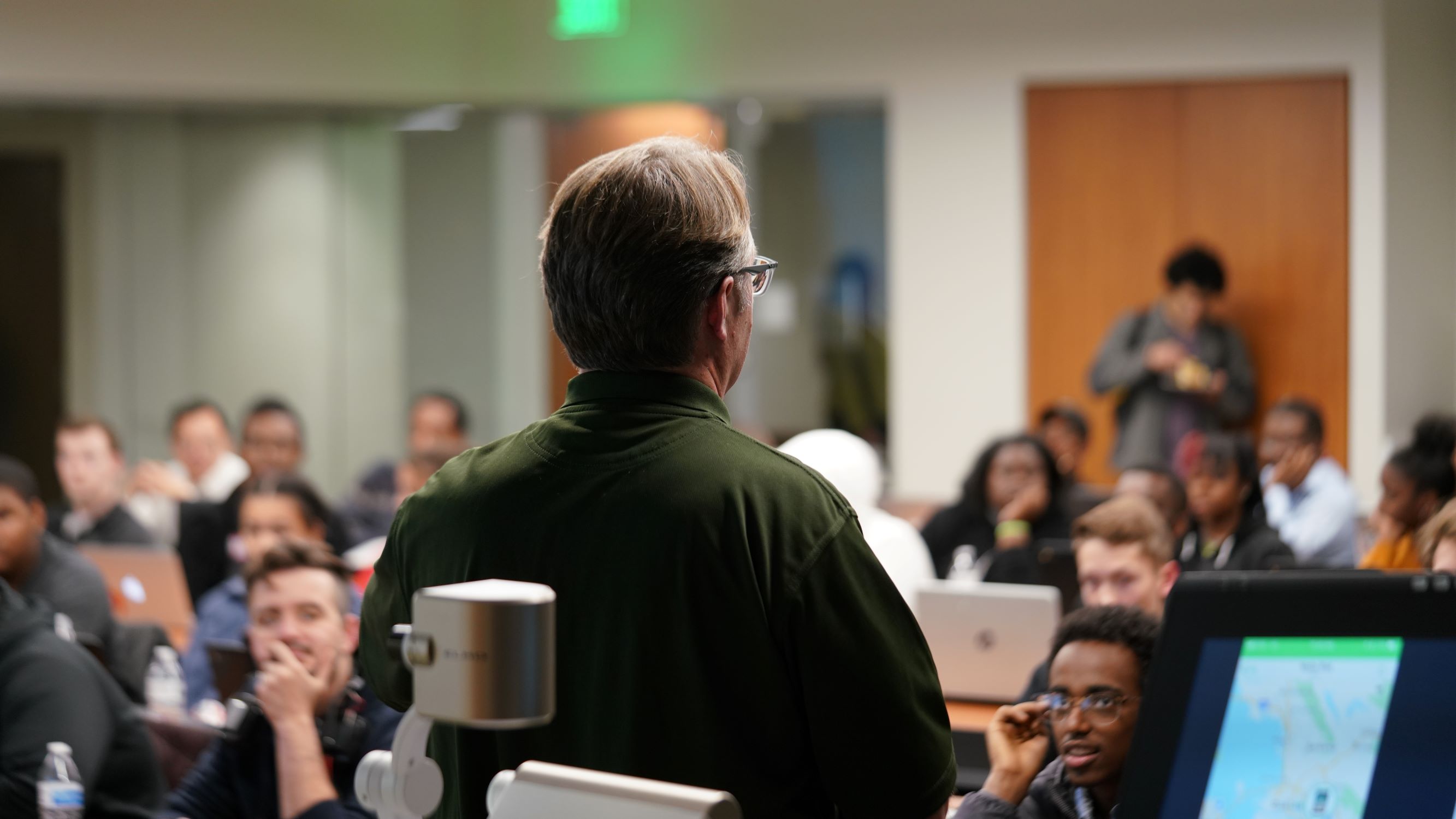1. Most people found out through social media.
Here’s the tweet I saw that first alerted me, notice it’s not from a news outlet and it was retweeted over 4,000 times.
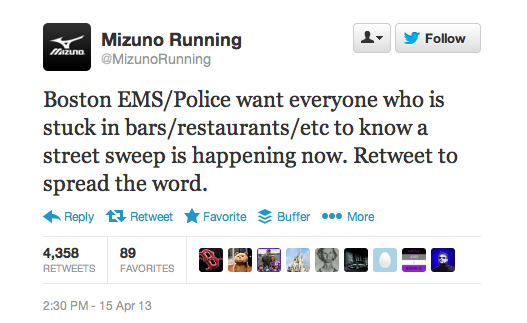 Since authorities shut down cell-phone service in Boston, social media like Facebook and Twitter were the only way people could share news of the tragedy. Read this news article about the vital role of social media following the bombing. Facebook allowed eyewitnesses to communicate their safety to family and friends, and authorities tweeted updates to news outlets. The storm of social media activity had the Boston Globe “temporarily converting its homepage to a live blog that pulled in Tweets from Boston authorities, news outlets, and ordinary citizens.”
Since authorities shut down cell-phone service in Boston, social media like Facebook and Twitter were the only way people could share news of the tragedy. Read this news article about the vital role of social media following the bombing. Facebook allowed eyewitnesses to communicate their safety to family and friends, and authorities tweeted updates to news outlets. The storm of social media activity had the Boston Globe “temporarily converting its homepage to a live blog that pulled in Tweets from Boston authorities, news outlets, and ordinary citizens.”
As a church don’t make the mistake of ignoring a communication tool that is so intertwined with people’s lives and relationships.
2. You can check the pulse of your community’s response.
Within 24 hours of the bombing, I saw tweets like these from leaders and neighbors in my community.
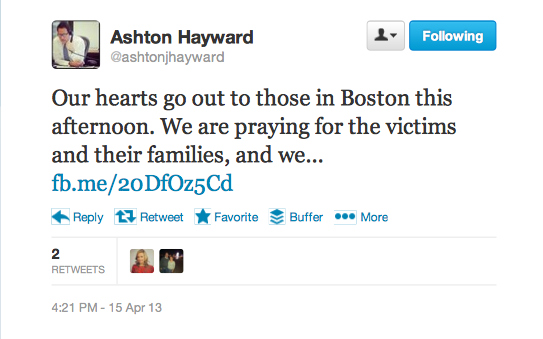
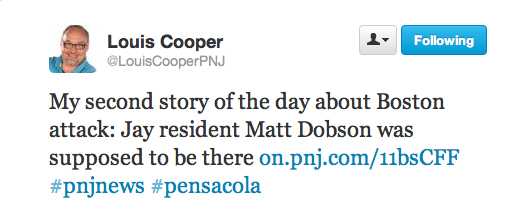
In the days to come organizations will mobilize to help victims. Social media will alert you to the efforts of local agencies and ways your congregation can help.
3. You need to tweet and post that you will address the Boston Bombing on Sunday
I am saving my expanded thoughts on this point for my post entitled “Why You Need to Mention the Boston Marathon Bombing this Sunday.” The bombing doesn’t have to be the focus of Sunday’s message, but it cannot be ignored. Moments of tragedy like this give church leaders a rare opportunity to share God’s redemption for the brokenness in our world.




